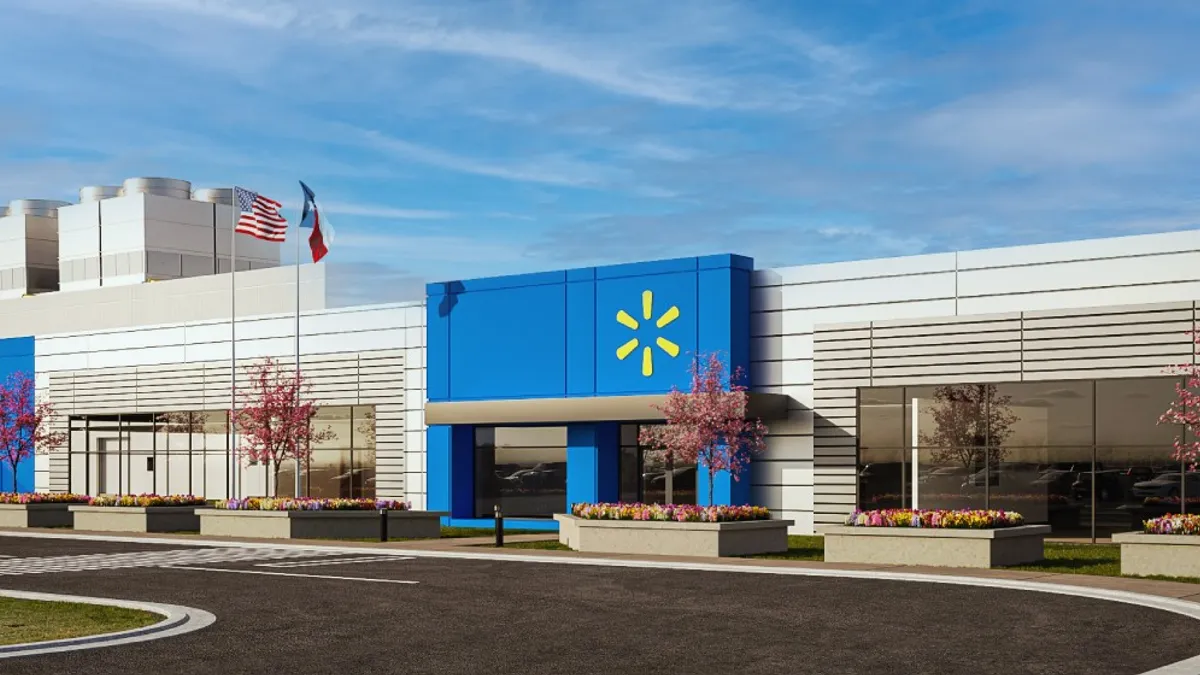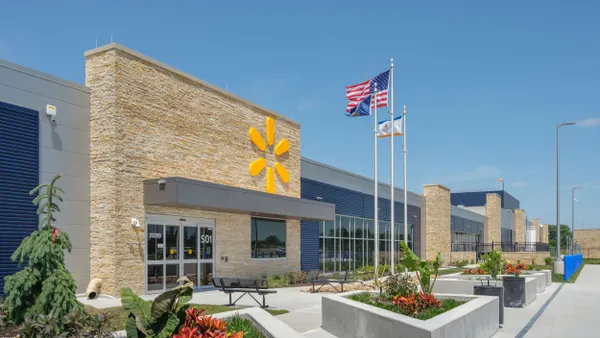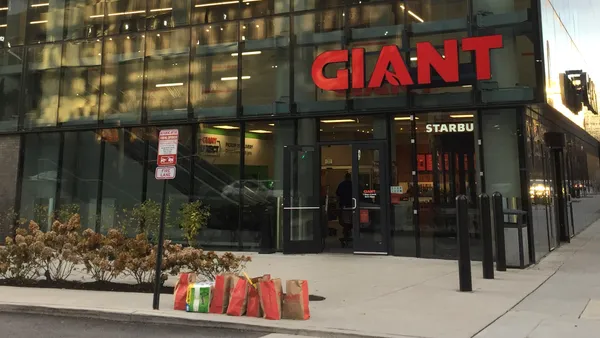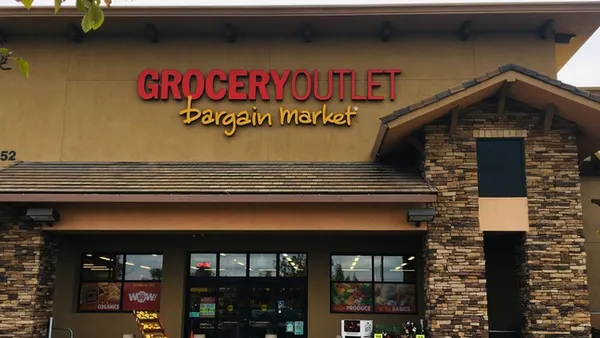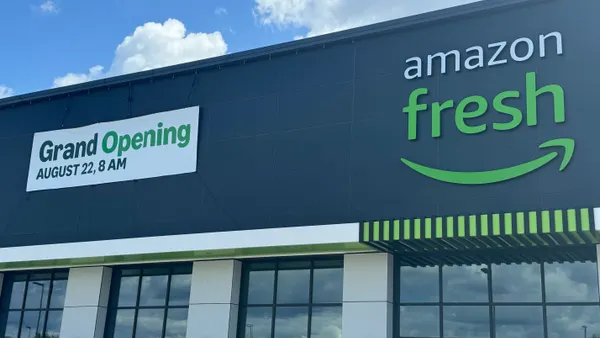Dive Brief:
- Walmart plans to open its third owned-and-operated milk-processing facility in 2026 to increase product transparency and supply chain resiliency, according to a March 7 press release.
- The plant will be located in Robinson, Texas, and is set to create almost 400 jobs. Products from the facility will be distributed at more than 750 Walmart stores and Sam’s Clubs in Texas, Oklahoma, Louisiana, Arkansas and Mississippi.
- “This new facility continues our commitment to building a more resilient and transparent supply chain,” Bruce Heckman, Walmart VP of manufacturing, said in the release.
Dive Insight:
When it comes to supply chain modernization, Walmart is often ahead of the curve. Its 2017 supply chain carbon-cutting initiative, Project Gigaton, hit its target six years early, while its drone delivery program plans to add 1.8 million more homes to its network. The retailer also added early morning delivery to its suite of options to help compete with Target and Amazon.
Walmart’s expanding milk-processing footprint is another part of that effort. Its first milk-processing facility opened in Fort Wayne, Indiana, in 2018, the press release said. Next came one in Valdosta, Georgia, which is set to open next year.
“Opening a Walmart owned and operated milk processing facility allows us greater control over the products entering our stores so we can continue to bring the highest quality offerings possible, all while keeping prices low and ensuring strong supply to meet customer demand,” a spokesperson said via email to sister site Supply Chain Dive.
Owning and operating its own facilities gives Walmart complete oversight over the bottling and packaging process, the spokesperson continued. It can ensure its own quality standards are met, as well as regulations set by the industry. The retailer has also expanded this model to other product supply chains, including case-ready beef, which has a dedicated facility in Thomasville, Georgia, with a second under construction in Olathe, Kansas.
The facility comes as consumer expectations around quality and sourcing have increased, Walmart said. And it isn’t the only company racing to meet them. Grocery distributor SpartanNash, for instance, recently partnered with ReposiTrak to access more traceability data while Target is narrowing in on its goal of tracing 100% of its palm oil supply.
“Our customers expect high quality from the products we offer, and the new facility will help ensure we continue to meet that demand, in an efficient way, with more visibility in the supply chain,” the Walmart spokesperson said.


